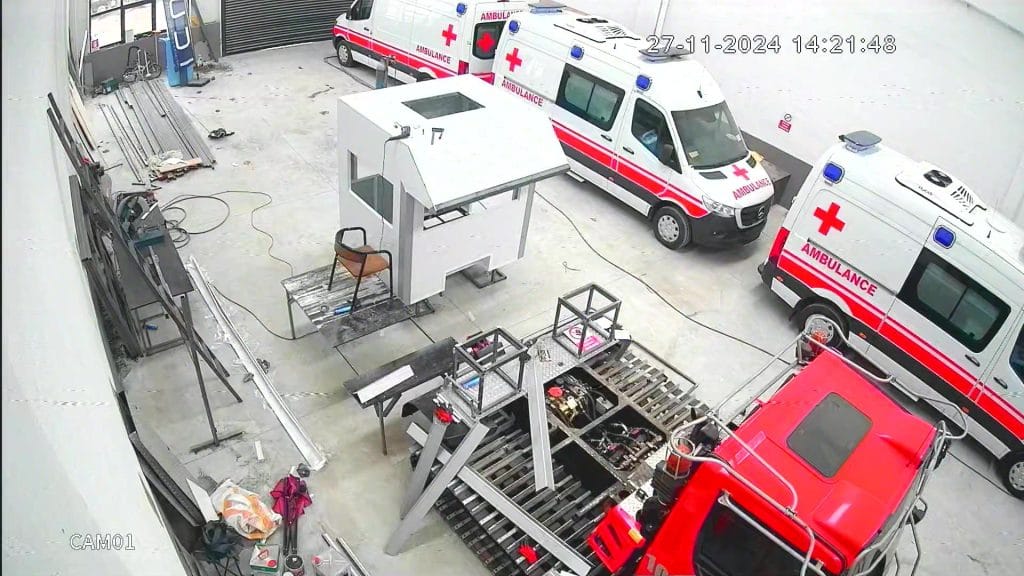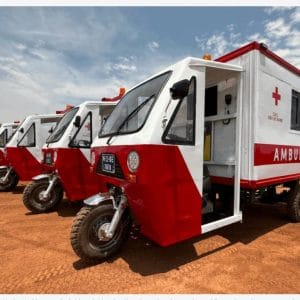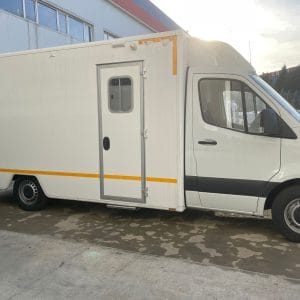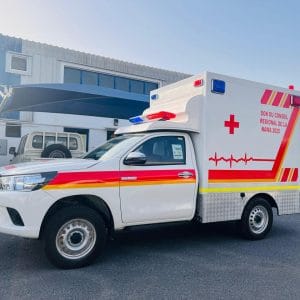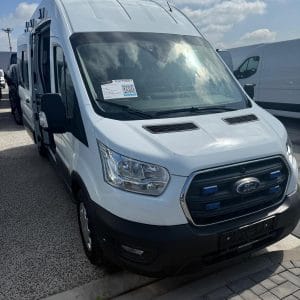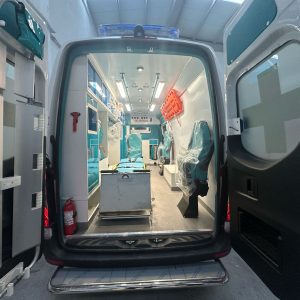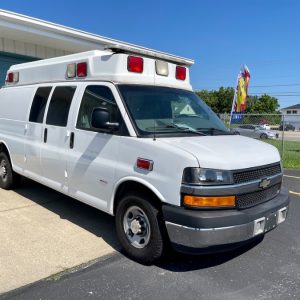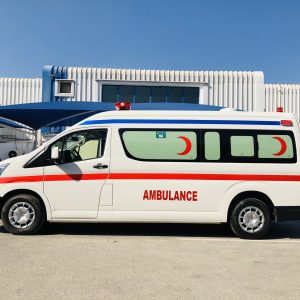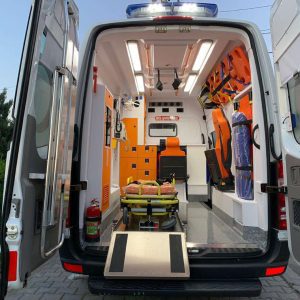In the world of emergency response, public safety, and specialized mobile services, the vehicle is more than just transportation—it is a mission-critical tool. The difference between a standard factory model and a purpose-built, body-on-vehicle can define the success of an operation. This is where the expertise of a specialized manufacturer becomes paramount. ICU Automotive stands at the forefront of this industry, engineering and producing high-performance, reliable, and custom-designed body-on-vehicles that meet the most demanding challenges on the road.
This article explores how ICU Automotive has established itself as a leader in body-on-vehicle manufacturing, detailing its core capabilities, the intricate process of customization, and the diverse sectors that rely on its expertly crafted vehicles.
What is Body-on-Vehicle Manufacturing?
Unlike standard monocoque vehicles where the body and frame are a single unit, body-on-vehicle (or body-on-chassis) construction involves mounting a specially designed body onto a separate, heavy-duty chassis frame. This method is essential for applications requiring:
- Exceptional Durability: To withstand heavy payloads and constant use.
- Extensive Customization: To create unique interior layouts for specific equipment and workflows.
- Enhanced Safety and Stability: To ensure safe operation under demanding conditions, often incorporating advanced safety systems.
- Independent Systems: To support complex electrical, hydraulic, and life-support systems independent of the vehicle’s engine.
ICU Automotive excels in this precise and technical field, transforming robust chassis from manufacturers like Mercedes-Benz, Ford, and Iveco into life-saving ambulances, mobile command centers, and specialized utility vehicles.
The ICU Automotive Difference: Engineering with Purpose
What distinguishes a premier body-on-vehicle manufacturer from a standard converter? ICU Automotive’s reputation is built on several foundational pillars:
1. Uncompromising Quality and Compliance:
ICU Automotive designs and builds to the world’s most stringent standards. For their ambulances, this means full compliance with European CEN 1789 standards, which govern the safety and performance of medical vehicles. This commitment extends to all their products, ensuring every vehicle meets relevant regional and international regulations for safety, emissions, and operational integrity.
2. Deep Technical Expertise and Integration:
The core of their work is seamless integration. ICU Automotive’s engineers are masters at marrying the custom body with the chassis’s existing systems. This includes:
- Advanced Electrical Systems: Designing redundant power systems with high-capacity AGM batteries, intelligent battery separators, and inverters to ensure all mission-critical equipment operates flawlessly, even with the engine off.
- Climate Control: Integrating powerful, stationary heating and cooling systems that maintain a controlled environment regardless of external conditions—a vital feature for patient care or housing sensitive electronics.
- Structural Integrity: Reinforcing the chassis and body to handle additional weight and stress, while often adding features like 4×4 all-wheel-drive systems for unmatched accessibility in remote or difficult terrain.
3. Total Customization from the Ground Up:
ICU Automotive operates on a client-first philosophy. There are no one-size-fits-all solutions. They collaborate closely with end-users—paramedics, firefighters, field technicians—to understand their unique operational workflows. This partnership ensures the final product is perfectly tailored, from the interior layout of cabinets and equipment mounts to the placement of every electrical outlet and oxygen port.
The Manufacturing Process: From Chassis to Mission-Ready Vehicle
The transformation at ICU Automotive is a meticulous, multi-stage process:
- Consultation and Design: Every project begins with a deep-dive consultation to define requirements. Using advanced CAD software, engineers create detailed plans for the body, interior, and all integrated systems.
- Chassis Preparation: The selected chassis cab is stripped and prepared. The foundation for the new body is laid, often involving strengthening the frame and running new wiring harnesses.
- Body Fabrication and Mounting: The custom body is constructed using durable, high-quality materials like aluminum composites and reinforced plastics. It is then meticulously mounted and sealed to the chassis, creating a single, robust unit.
- Systems Integration: This is the most complex phase. The electrical systems, plumbing, HVAC, and all specialized equipment are installed, tested, and calibrated.
- Quality Assurance and Testing: The near-complete vehicle undergoes a rigorous battery of tests. This includes road testing for handling and stability, electrical load testing, and functional checks of every single component under simulated real-world conditions.
- Final Delivery and Training: Upon passing all checks, the vehicle is delivered to the client. ICU Automotive often provides comprehensive operational training to ensure the end-users can leverage every feature of their new vehicle safely and effectively.
A Diverse Portfolio of Specialized Vehicles
ICU Automotive’s expertise extends across multiple sectors, demonstrating their versatility as a body-on-vehicle manufacturer:
- Emergency Medical Services (Ambulances): Their flagship products include Type II and Type III ambulances, including advanced 4×4 models for rural and disaster response. These are equipped with electric stretcher systems, advanced oxygen and suction units, and intelligent power management.
- Mobile Medical Clinics: Larger bodies on truck chassis are transformed into fully-equipped mobile clinics and field hospitals, complete with examination rooms, diagnostic equipment, and generators for self-sufficiency.
- Command and Communication Centers: These vehicles serve as on-scense headquarters for disaster management and public safety, featuring satellite communications, video monitoring, and ergonomic workstations.
- Specialized Utility Vehicles: From mobile workshops and laboratory trucks to armored cash-in-transit vehicles, ICU Automotive provides robust and secure solutions for a wide array of industrial and commercial needs.
Why Partner with a Specialist Manufacturer?
Choosing a generic vehicle or a less specialized converter can lead to operational inefficiencies, higher long-term costs, and safety compromises. Partnering with an expert body-on-vehicle manufacturer like ICU Automotive offers undeniable advantages:
- Proven Reliability: Vehicles are built to last in the most demanding environments.
- Optimal Operational Efficiency: A custom-designed layout saves critical time and reduces crew fatigue during emergencies.
- Long-Term Value: Higher quality materials and construction reduce downtime and maintenance costs over the vehicle’s lifespan.
- Turnkey Solution: Clients receive a fully mission-ready asset, backed by warranties and expert support.
Conclusion: The ICU Automotive Standard
In a crisis, the right tool can make all the difference. ICU Automotive embodies the pinnacle of body-on-vehicle manufacturing, where engineering precision meets a profound understanding of field operations. They don’t just build vehicles; they build confidence, providing the men and women on the front lines with the reliable, advanced, and purpose-built partners they need to save lives, protect communities, and execute their missions with excellence. For any organization whose work depends on a vehicle that must do more, ICU Automotive is the engineering partner of choice.


